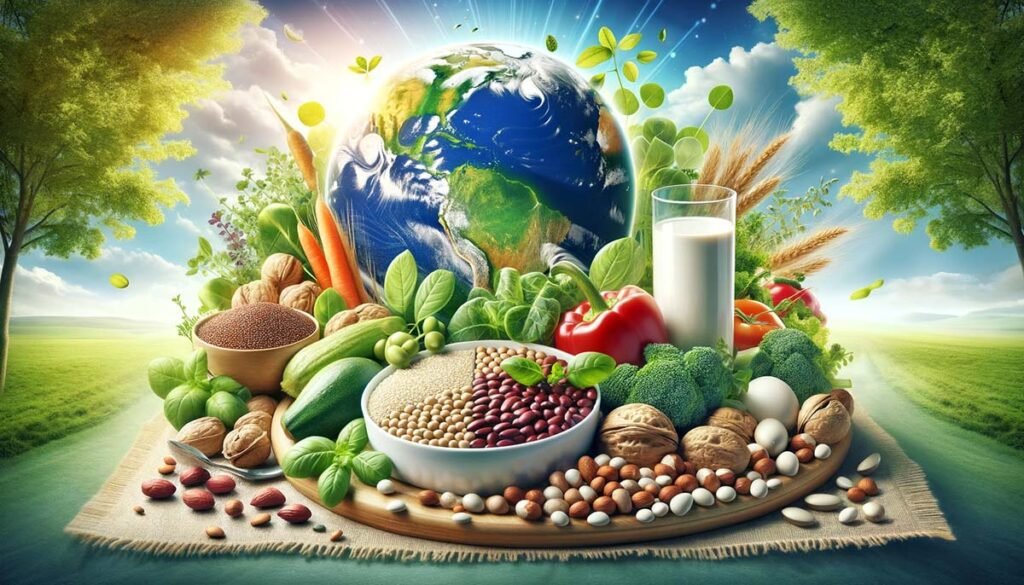Introduction: Wellhealthorganic High Protein Rich Food For Vegetarians To Boost Your Health
In today’s health-conscious world, incorporating adequate protein into a vegetarian diet is crucial for overall well-being. WellHealthOrganic advocates for a balanced approach to nutrition, emphasizing natural, plant-based sources of protein that support optimal health and vitality. This guide explores a variety of high-protein foods suitable for vegetarians, ensuring you can meet your nutritional needs without compromising on taste or quality.
Understanding Protein Needs for Vegetarians
Protein is essential for building and repairing tissues, supporting immune function, and maintaining muscle mass. While meat is a traditional source of protein, vegetarians can achieve their protein requirements through a diverse range of plant-based foods. WellHealthOrganic promotes these alternatives, emphasizing their nutritional benefits and contribution to a balanced diet.
Benefits of Plant-Based Proteins
- Nutrient Density: Plant-based proteins are rich in essential nutrients such as fiber, vitamins, minerals, and antioxidants, promoting overall health.
- Heart Health: Many plant proteins are low in saturated fats and cholesterol, which can help lower the risk of heart disease.
- Digestive Health: Plant proteins often contain fiber, which supports digestive health and regularity.
- Environmental Sustainability: Choosing plant-based proteins reduces environmental impact compared to animal-based proteins.
High-Protein Foods for Vegetarians
- Lentils: Rich in protein and fiber, lentils are versatile and can be used in soups, stews, salads, and curries.
- Chickpeas: Also known as garbanzo beans, chickpeas are a staple in vegetarian diets and can be used to make hummus, curries, and roasted snacks.
- Quinoa: A complete protein, quinoa contains all nine essential amino acids and is perfect for salads, stir-fries, and as a substitute for rice.
- Tofu and Tempeh: Soy-based products like tofu and tempeh are excellent sources of protein, versatile in cooking, and absorb flavors well.
- Beans (Black beans, Kidney beans, Pinto beans): Beans are high in protein and fiber, ideal for soups, chili, tacos, and salads.
- Greek Yogurt: Greek yogurt is higher in protein compared to regular yogurt and can be enjoyed with fruits, nuts, or in smoothies.
- Nuts and Seeds (Almonds, Chia seeds, Hemp seeds): These are protein-rich snacks or additions to salads, yogurt, and baked goods.
- Edamame: Young soybeans, edamame is a protein-rich snack or can be added to salads and stir-fries.
- Seitan: Made from wheat gluten, seitan is a high-protein meat substitute suitable for dishes like stir-fries and sandwiches.
- Nutritional Yeast: A vegan source of protein and B vitamins, nutritional yeast can be sprinkled on dishes like pasta, popcorn, and salads for a cheesy flavor.
Incorporating High-Protein Foods into Your Diet
- Meal Planning: Plan meals that include a variety of high-protein foods throughout the week to ensure balanced nutrition.
- Snacking Smart: Opt for protein-rich snacks like Greek yogurt with fruits, nuts, or homemade trail mix to curb hunger between meals.
- Cooking Techniques: Experiment with different cooking methods such as baking, grilling, sautéing, and steaming to enhance flavors and textures.
- Balancing Macronutrients: Combine high-protein foods with carbohydrates and healthy fats for balanced meals that provide sustained energy.
Tips for Optimal Nutrition
- Variety: Incorporate a variety of protein-rich foods to ensure you receive all essential amino acids and nutrients.
- Quality: Choose organic and non-GMO sources whenever possible to minimize exposure to pesticides and additives.
- Hydration: Drink plenty of water throughout the day to support digestion and overall health.
- Consultation: If you have specific dietary needs or health concerns, consult with a registered dietitian or healthcare provider for personalized advice.
Conclusion
High-protein foods are essential for vegetarians to maintain optimal health and well-being. WellHealthOrganic encourages the incorporation of diverse, plant-based protein sources into your diet to support muscle development, immune function, and overall vitality. By embracing these nutrient-rich foods, you can enjoy a balanced and satisfying vegetarian diet that promotes long-term health and wellness.

